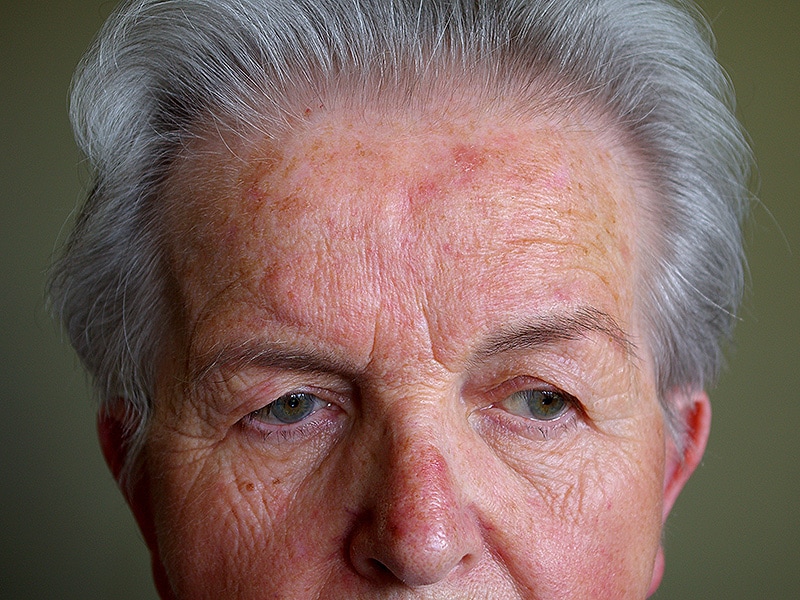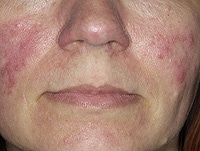FDA Clears Ivermectin Cream (Soolantra) for Rosacea
The US Food and Drug Administration has approved 1% ivermectin cream (Soolantra, Galderma Labs), a once-daily treatment for the inflammatory lesions, bumps, and pimples of rosacea.
Rosacea is a common chronic skin condition affecting an estimated 16 million Americans, predominantly women, aged 30 years and older. The exact cause of the characteristic facial redness, pimples, and bumps of rosacea is unknown, but research suggests multiple triggers, including exposure to sun, alcohol, spicy food, and exercise. Recent evidence also suggests that rosacea may be caused by the overproliferation of Demodex mites in the skin.
Ivermectin, the active ingredient in the cream, has both anti-inflammatory and antiparasitic activity. The basis for the cream is Cetaphil moisturizing cream, a dermatologist-recommended formula that is fragrance-free, mild, and nonirritating, the company says.
The approval of ivermectin cream was based on two pivotal phase 3 randomized, double-blind, 12-week, vehicle-controlled studies involving 910 patients with rosacea.
In both studies, ivermectin cream applied once daily met each of its primary efficacy endpoints of treatment success, as defined by an Investigator Global Assessment rating of clear skin and change in inflammatory lesion count.
Beneficial effects were observed as early as week 2, with continuous improvement, the company says.
Rosacea is a "challenging condition to manage as it tends to vary from patient to patient, often requiring a tailored approach," Linda Stein Gold, MD, Galderma consultant and clinical investigator for the phase 3 studies, said in a company statement. "While some rosacea treatments for the common bumps and pimples of the condition may take more than 4 weeks to show effect, Soolantra Cream may provide initial results as early as week 2," she noted.
In long-term extensions to the 12-week studies, ivermectin cream was safe and well-tolerated for an additional 40 weeks (up to 52 weeks in total), although some patients reported skin burning and skin irritation.



No comments:
Post a Comment